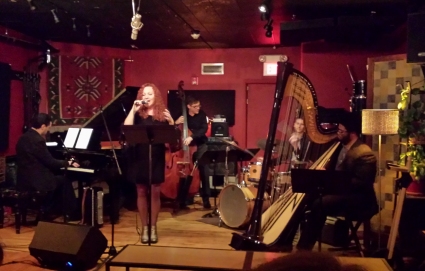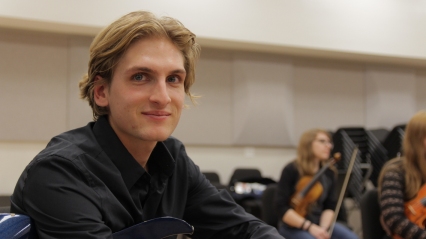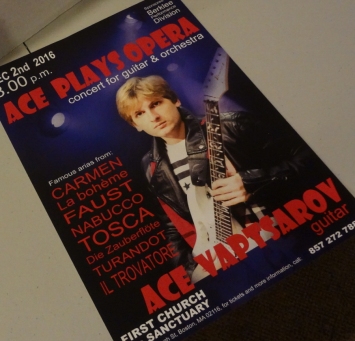Album Review of Dallas Cosmas: The Memory Keys
Dallas Cosmas‘ goal seems to be to push the envelope of progressive alt-rock music. His style is somewhat plodding and gloomy, enhanced by frequent musical dissonance. I’m never entirely sure if I like Dallas’ vocals; he seems to miss a lot of notes. Typically I’m not sure if he’s a little flat intentionally or not, and even if it is on purpose, I’m not sure what I think of it. But I’m also aware that the honest, raw emotional connection of a singer-songwriter, even one whose voice perhaps wouldn’t win any singing competitions, appeals to a large segment of the listening audience, especially so to those who enjoy Dallas’ mood-driven, progressive alt-rock style. And, indeed, after a couple dozen listens to The Memory Keys, there are several songs I can’t imagine would work nearly as well with more polished vox. Indeed, I do really like some of these songs. So if this is a genre you enjoy — or if you’re willing to give some solid, well-crafted, ambitious music enough listens for its quirks to grow on you — give The Memory Keys a shot. This is an interesting release from an artistic, talented musician, an album that’s tremendously well-produced and well worth the effort to get familiar with.
Dallas wrote and produced the disc and delivered the vocals, keyboards, bass, and guitar on The Memory Keys. As always, Dallas worked with a talented team. He was joined by Paul Richards on the drums, with Wally Rankin (guitars, backing vocals), Wayne Rintoul (soundscapes, backing vocals), Brother To The Birds (rhyhtms, guitars, loops, backing vocals), Matthew Shadwick (guitar, slide), Evan Englezos (keys), and Simon Segal (keys, treatments) joining him. The disc was directed by Simon Segal, engineered by Wayne Rintoul, and mastered by Martin Pullan for Edensound.
Getting back to the music, though, The Memory Keys takes influences ranging from ’60s Beatles-style pop-rock to ’80s New Wave to ’70s Bowie progressive pop-rock and blends them into an identity all its own. Right off, there’s a late-’60s pop-rock vibe to the album-opener “45 Revolutions” that sets the stage for this record. The following song, “The Midnight Road,” then swings the album in a more progressive pop direction, lyrically imaginative with an electronic flavor to its bass and guitar hooks. I appreciate that there’s a music video for this number on YouTube, as it’s a great introduction to Dallas’ music, as good a litmus test as I can imagine for whether you’re likely to enjoy the rest of the disc… though perhaps not, as it’s not even among my personal favorites.
The plaintive “Bang Bang (The Chorus)” serves up a real sense of anguish, actually reminding me in that sense a bit of an album I reviewed earlier this year, Night Worker from “Les Paul’s” (The Paul’s). Both albums leave the listener intrigued but uneasy as they navigate relatively uncharted progressive waters.
Interestingly, my favorite tracks land near the end of The Memory Keys‘ seemingly purposefully ebbing and flowing musical journey, but there are some cuts in the middle that are worth taking note of, including the haunting “A Part of Me,” the reverb-laden, ’70s-era, experimentally off-balance “Why Don’t You,” and the softly almost-melodic, tensely uncomfortable, emotionally bare “It’s Over Me.”
But, again, it is in the final third that you’ll find my personal favorites.
First is the alt-rock, soundtrack-ready “Meet You Once Again.” I’m picturing it playing in the background during one of those heartbroken montages… or perhaps even during a reuniting sequence at a dingy bar somewhere… or in a cafe while it’s raining outside, especially if there’s an uneasiness that it might not end well.
The strings and the ’60s pop-rock nature of its songwriting, along with a certain warm tone in Dallas’ vocals make “The Promise” an easy track to enjoy, like the alt-rock doppleganger of Billy Joel sings the Beatles in a funhouse.
The uneasiness doesn’t go away on “Green Girl,” a slow-tempoed, flower-childy number whose psychedelic nature comes through via distorted guitar and a tempo that always seems as if it’s going to fall a fraction of a count off but never does.
And then “Good Goodbye” closes the collection with another soundtrack-flavored number, this one a mid-tempo bit that seems as if it might play as the movie’s action fades into the credits.
I enjoy being tuned into the work Dallas and his cohorts at Prototype Musique produce. Such depth of musical background and willingness to experiment produce interesting sounds and albums conceived as a combination of art, expression, and music. I look hearing to seeing what this talented Australian ensemble produces next, both Dallas’ future solo work and the other projects on which he and his team are involved. So far, The Memory Keys stands among my favorites from Prototype.
Looking Back
For those who missed it, Geoff Wilbur’s Music Blog contributor Joe Szilvagyi reviewed Dallas Cosmas’ previous album, Farewell From the Lighthouse, back in June.









































